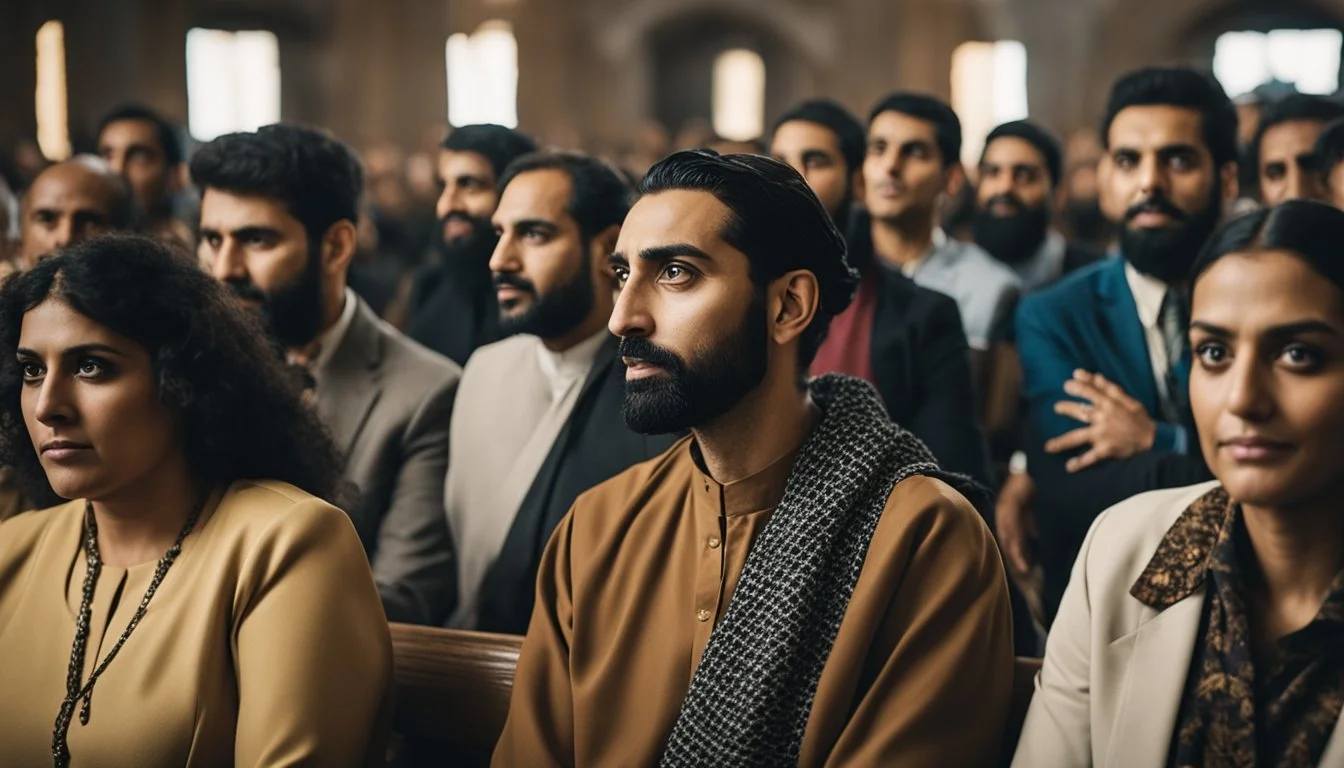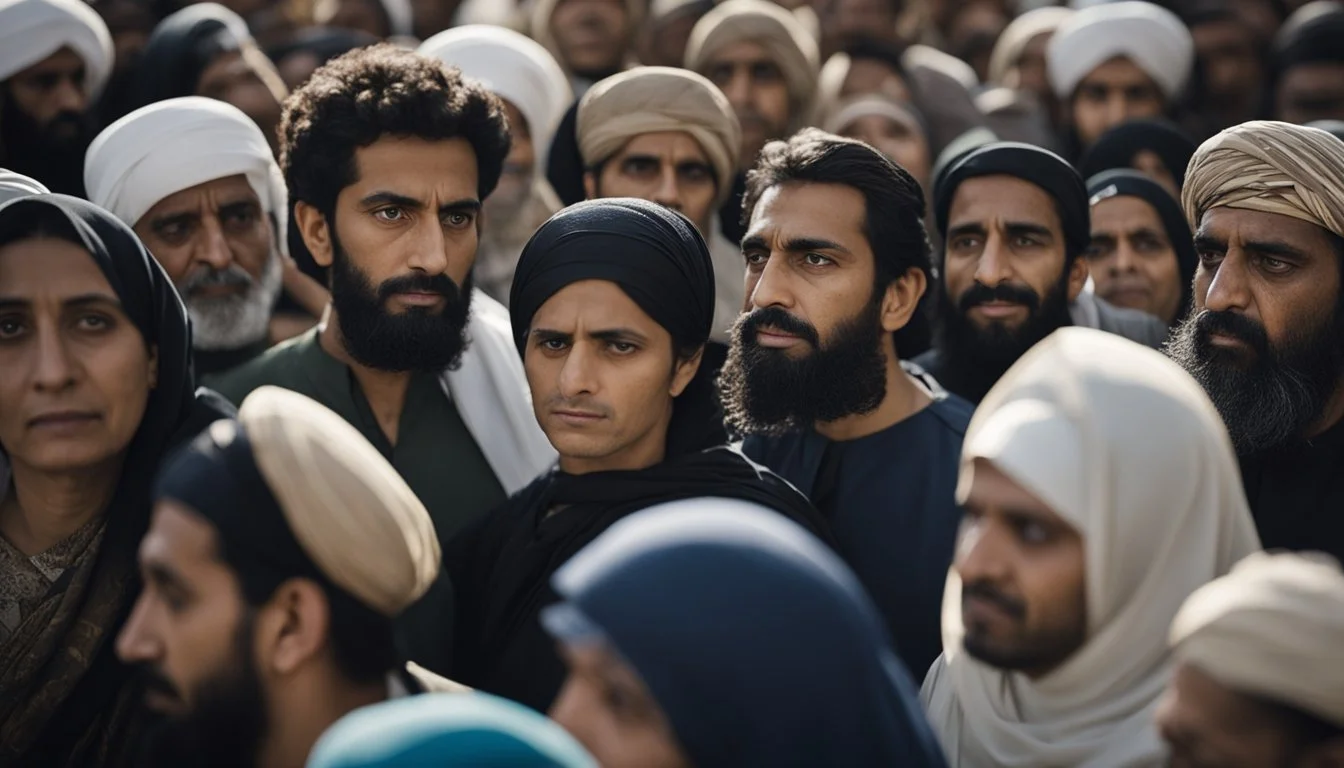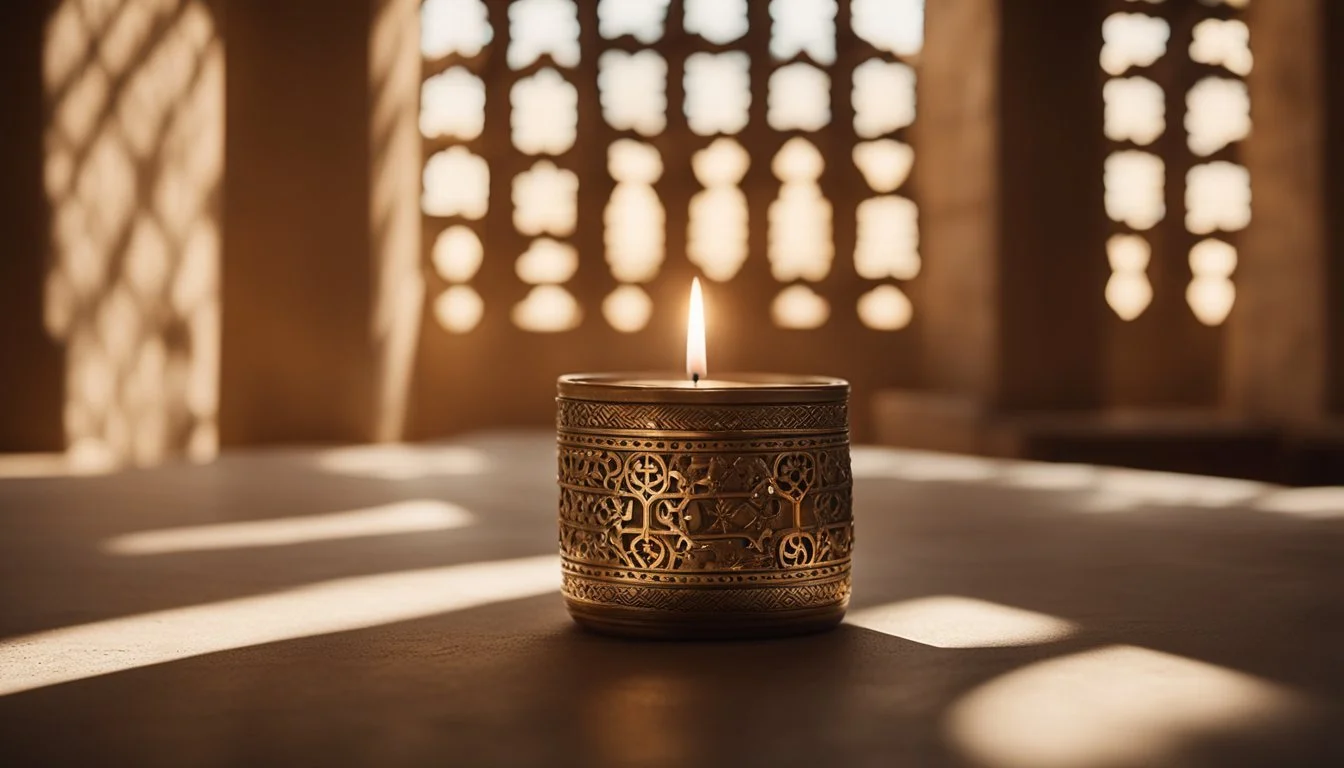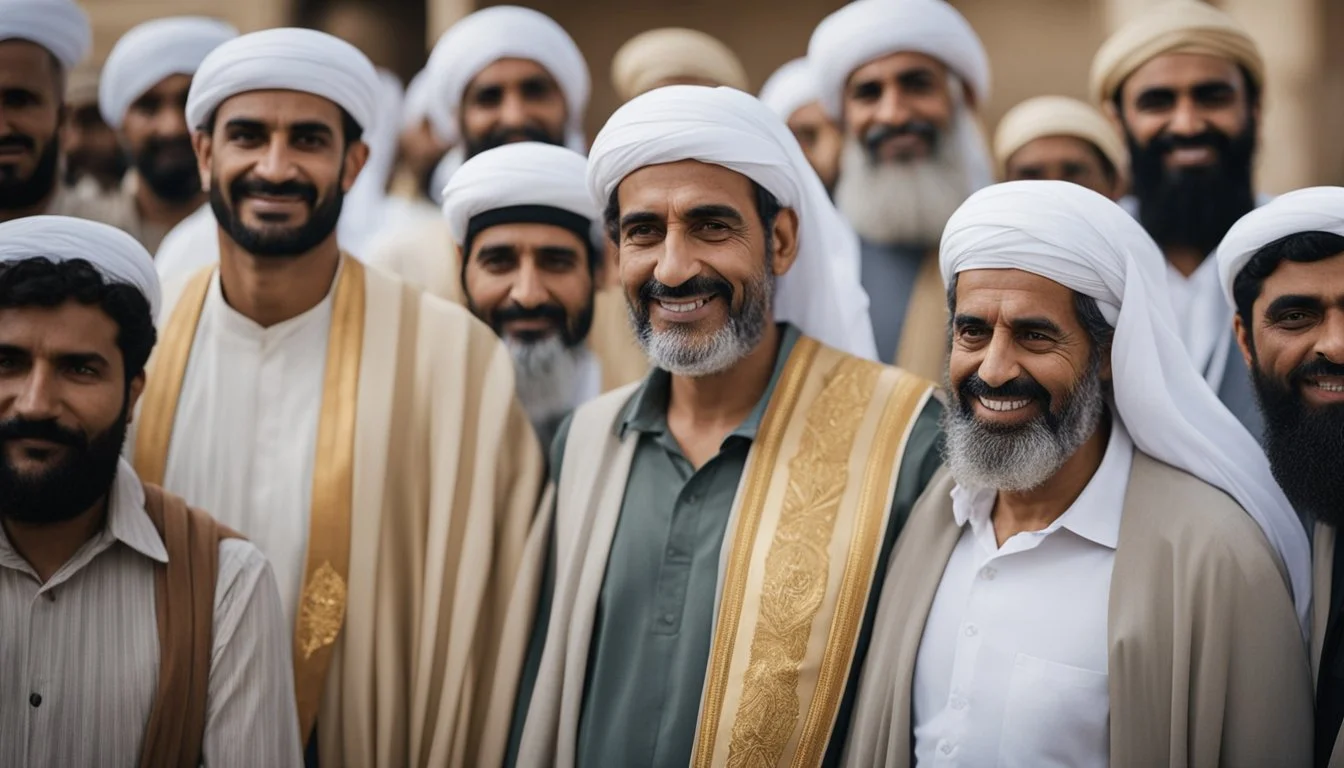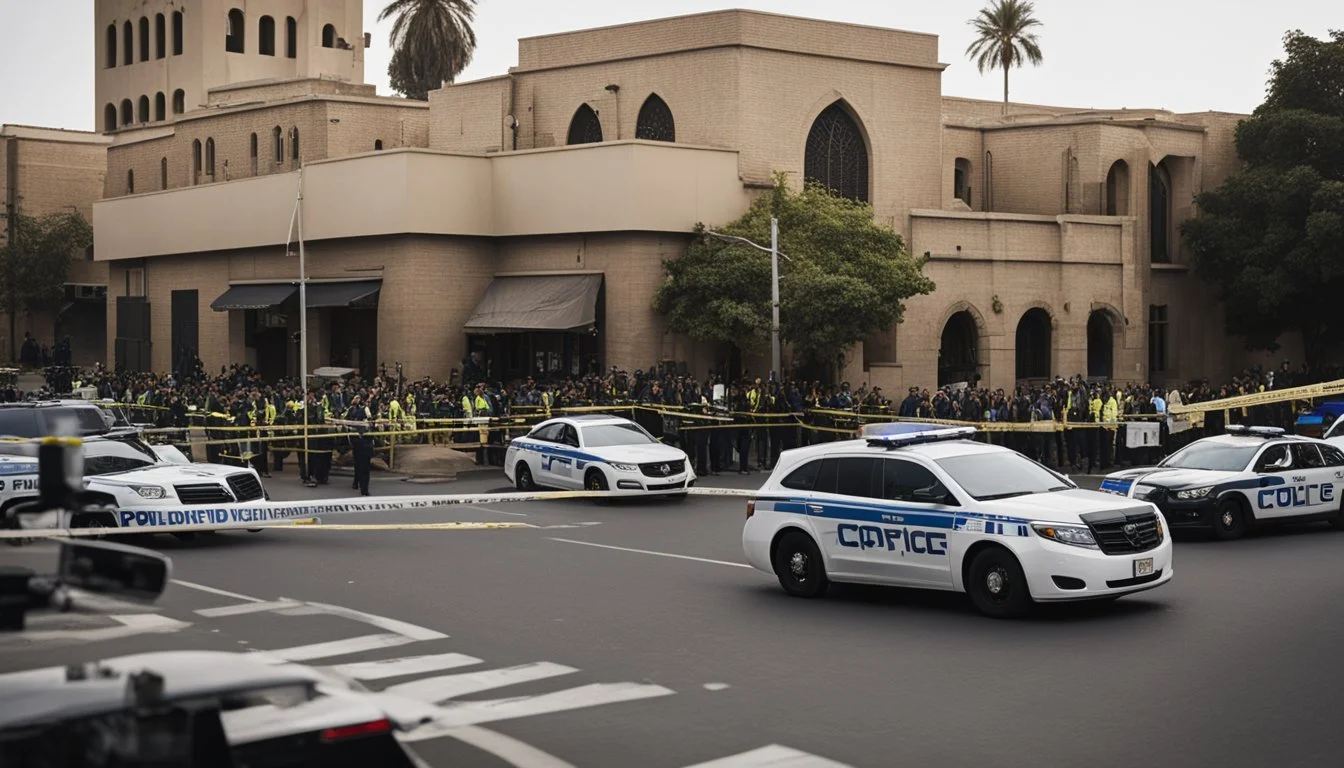6 True Crime Documentaries About Coptic Christian Communities
Uncovering Hidden Histories
True crime documentaries have always captivated audiences with their raw and often unsettling depictions of real-life events. Recently, interest has grown in stories involving Coptic Christian communities, providing a unique perspective on the challenges and adversities faced by this group.
These documentaries highlight not only criminal activities but also the resilience and faith of the Coptic Christian communities. Viewers gain insights into both historical and contemporary issues that shape the lives of Copts in regions where they are a minority, allowing for a deeper understanding of their experiences and contributions.
1) Out of Egypt: The Untold Story of Copts (2017)
"Out of Egypt: The Untold Story of Copts" is a compelling documentary that shines a light on the history and experiences of Egypt's Coptic Christian community.
Released in 2017, this film explores the Copts' rich heritage and their enduring faith through the lens of historical events.
Copts are among the oldest Christian communities in the world, tracing their origins to the arrival of Saint Mark in Egypt during the first century. Despite their long-standing presence, they face significant challenges.
The documentary intricately details periods of persecution and resilience, highlighting episodes of violence and discrimination against the Copts. It addresses the societal and political dynamics that have impacted their lives over the centuries.
The film offers a mix of personal testimonies, expert interviews, and archival footage, creating a vivid portrayal of the Coptic experience.
For those interested in deepening their knowledge about this ancient community and its contemporary issues, "Out of Egypt: The Untold Story of Copts" is an essential watch.
More information can be found here.
2) Copts: A Community Under Siege
Coptic Christians in Egypt form one of the oldest Christian communities in the world. They trace their origins back to St. Mark in the first century. This deep-rooted history stands in stark contrast to the violence they face today.
In modern times, Copts often find themselves victims of persecution and attacks on their churches. They have been scapegoated and marginalized by the state. This persecution has intensified under different political regimes.
A significant incident occurred in 2015 when the Islamic State kidnapped and executed 21 Coptic Christians in Libya. This horrific act highlighted the vulnerabilities of the Coptic community.
Freedom of speech and expression for Copts in Egypt is also heavily restricted. This limitation makes it difficult for them to voice their struggles and seek justice.
Violence against Copts often includes the torching of homes and attacks during religious ceremonies. Despite being around 10 percent of Egypt's population, Copts routinely face social and political exclusion.
These true crime documentaries reveal the ongoing challenges faced by Coptic Christians, shedding light on a community fighting for survival in a hostile environment.
3) Faith in Shadows: Coptic Christian Survival
"Faith in Shadows" (2016) is a poignant documentary that details the survival of Coptic Christians in Egypt. The film highlights the resilience of this minority community, which has faced historical and modern-day persecution.
Through interviews and archival footage, the documentary showcases how Coptic Christians have managed to maintain their faith and traditions for centuries.
The film also reveals the daily struggles they face, from discrimination to violence, and how their close-knit communities offer support and solace.
"Faith in Shadows" offers viewers a deep look into the strength and determination of Coptic Christians, making it an essential watch for those interested in religious perseverance and human rights.
4) The Hidden History of Copts in Modern Times
The Coptic Christian community has faced various challenges over the years. Despite their long history, modern times have presented unique hurdles.
In Egypt, Copts frequently encounter persecution and marginalization. Attacks on churches and discrimination are not uncommon.
Coptic emigration surged in the 1960s. Today, significant communities exist outside Egypt, especially in the United States, creating a global diaspora.
Copts maintain a distinct ethnic identity, separate from Muslim Egyptians. This includes genetic, cultural, and ethnic differences, which are often overlooked.
Historically, Copts trace their roots back to St. Mark, an apostle of Jesus. This historical lineage is significant in understanding their rich cultural and religious heritage.
Their contributions to global culture and society often go unnoticed. Copts have made notable impacts through art, literature, and religious traditions.
The struggle for recognition and rights continues. Efforts to preserve their history and traditions are vital for the community's ongoing resilience and identity.
5) Defenders of Faith: Coptic Martyrs
A French documentary titled The 21, the Power of Faith: the Village of Martyrs (2024) focuses on the 21 Coptic Christians who were brutally martyred by ISIS in 2015. The documentary features testimonies from family members and premiered at the Vatican Film Library. It explores the deep faith and sacrifices of these individuals. More information.
The film Jesus Christ Be With Me: The Courageous Story Behind the 21 Coptic Martyrs (2017) delves into the lives of the martyrs, who were mostly young laborers from Egypt. Captured and executed for refusing to renounce their Christian faith, their story is one of steadfast commitment. This documentary underscores their influence on both their local and global communities. More information.
Information about these martyrs can also be found in The 21 - A Journey into the Land of Coptic Martyrs (2023) by Martin Mosebach, which provides an in-depth narrative of their lives and ultimate sacrifice. Although it’s a book, it has inspired coverage in visual media formats. More information.
6) Coptic Voices: Stories of Resilience
"Coptic Voices: Stories of Resilience" (2023) takes an insightful look into the lives of Coptic Christians navigating challenges across different regions.
Through personal testimonies, the documentary portrays the community's unwavering strength and adaptability in the face of adversity.
The filming covers various events that showcase the Coptic community's pursuit of justice and equal rights.
With a focus on human stories, it captures their journeys from Egypt to the diaspora, shedding light on cultural preservation and community solidarity.
Expert interviews provide context on historical and contemporary issues affecting the Coptic population globally.
One significant aspect highlighted is the role of faith and tradition in fostering resilience.
By exploring different narratives, the film illustrates the shared struggles and triumphs within the Coptic community.
For more information on the documentary, visit IMDb.
Understanding True Crime in Religious Communities
True crime within religious communities often reveals complex dynamics involving faith, culture, and criminal activity. Examining Coptic Christian communities provides a unique perspective on how these factors intertwine.
Definition and Scope
True crime in religious communities encompasses illegal activities that occur within or impact these groups. These may involve crimes committed by members against each other or actions taken by external entities targeting the community. Types of crimes vary widely and can include fraud, abuse, assault, or even murder.
Religious settings add layers of complexity. The roles of faith leaders, community structures, and religious doctrines influence how crimes are perceived, reported, and prosecuted. This makes study vital for understanding the intersection of belief and criminal behavior.
Historical Context
Historically, crimes in religious communities have stemmed from various sources. Political tensions, societal pressures, and internal power struggles often play significant roles. For Coptic Christians, persecution in their Middle Eastern homelands has sometimes led to internal discord and criminal investigations.
Examining specific cases helps highlight these dynamics. For instance, historical events such as the First Revolt, which created a rift between Christianity and Judaism, set precedents for later religious conflicts and crimes. Understanding these events provides context for modern investigations and documentaries focused on Coptic Christians and other religious communities.
Coptic Christians: An Overview
Coptic Christians, primarily based in Egypt, form the largest Christian community in the Middle East. Their history dates back to the early days of Christianity, and they still play a significant role in their societies despite facing numerous challenges.
Brief History of Coptic Christianity
Coptic Christianity traces its roots to Saint Mark the Evangelist, who is believed to have brought Christianity to Egypt in the first century AD. The Copts separated from the broader Christian community after the Council of Chalcedon in 451 AD due to theological differences.
The early centuries were marked by periods of intense persecution under Roman and later Byzantine rule. Under Muslim rule, which began in the 7th century, Copts were subjected to social and economic pressures to convert to Islam. Despite these historical challenges, the Coptic Church has maintained its distinct traditions and liturgies.
Coptic Christian Communities Today
Today, Coptic Christians in Egypt number approximately 9 million, making them the largest Christian group in the Middle East. They are primarily concentrated in urban areas such as Cairo and Alexandria but also have significant rural populations, particularly in Upper Egypt.
The Coptic Church remains central to community life, offering not just spiritual guidance but also social services. However, Copts continue to face discrimination and violence. Incidents of mob attacks and legal injustices are frequent, often driven by religious and social tensions. Internationally, the Coptic diaspora is growing, with communities in the United States, Canada, Australia, and Europe continuing to uphold their cultural and religious traditions.
The Intersection of Faith and Crime
Exploring the impact of crime on Coptic Christian communities reveals essential insights into how faith shapes experiences and responses to criminal activities.
Challenges Faced by Religious Minorities
Coptic Christians often face significant hardships, including targeted violence and discrimination. Historical incidents, such as the execution of 21 Coptic Christians by ISIS in 2015, highlight the extreme dangers these communities encounter.
They also experience systemic issues like restricted religious freedoms and societal exclusion. These challenges force Coptic communities to navigate their faith amidst ongoing threats, often leading to a resilient yet cautious existence.
Influence of Religious Beliefs on Crime and Justice
For Coptic Christians, religious beliefs profoundly influence perspectives on crime and justice. Their faith emphasizes forgiveness and reconciliation, affecting how they respond to both criminal acts and the legal processes that follow.
Religious doctrines prioritize community solidarity, often guiding conflict resolution and crime prevention strategies. This approach can sometimes conflict with state legal systems, balancing punitive measures with restorative justice principles rooted in their beliefs.

